20 Ingredients That Help You Cook with Less Oil and Keep the Flavor
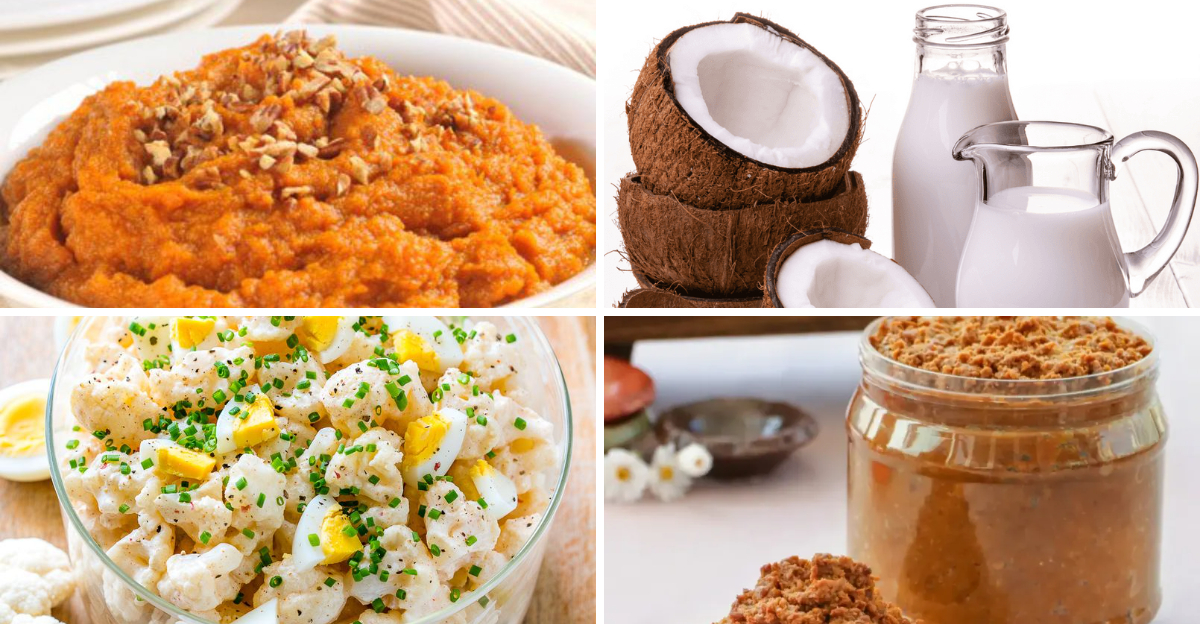
Reducing oil in cooking can enhance both flavor and health. By using ingredients like vegetable broth, citrus juices, yogurt, and pureed vegetables, you can maintain moisture and richness. Fresh herbs, spices, and garlic add depth, while nut butters and avocado provide creamy textures. Explore these 20 options to achieve delicious, satisfying dishes without relying heavily on oil.
1. Apple Sauce
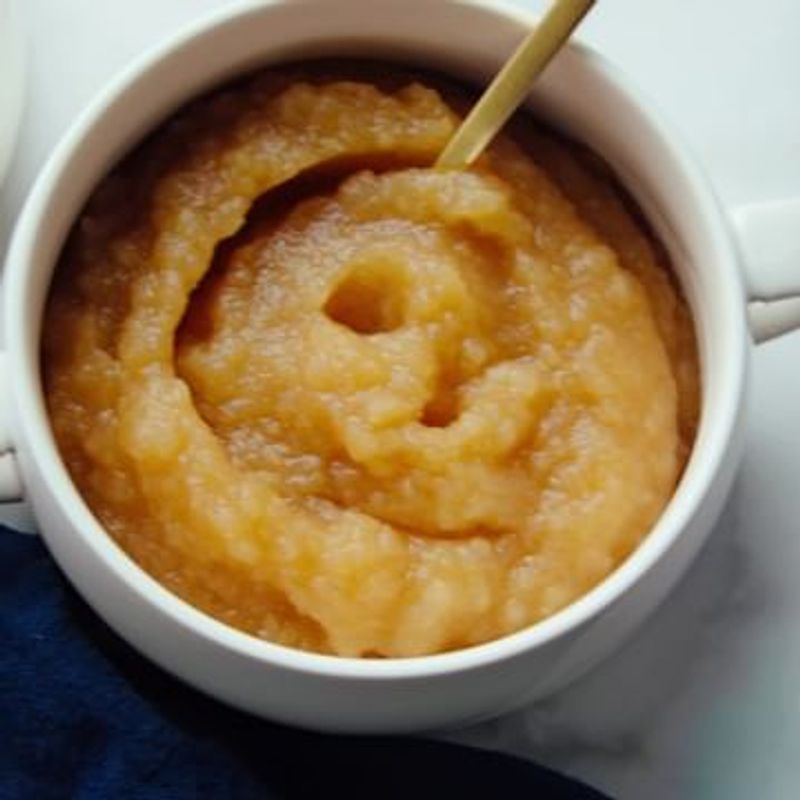
Apple sauce is a healthy substitute for oil in baking. Its natural sweetness and moisture can enhance muffins, cakes, and cookies while reducing fat content. When using apple sauce, you can swap it in equal amounts for oil in most recipes. The texture of baked meals remains soft and tender, often enhancing the overall flavor profile. Using apple sauce doesn’t just cut down on oil but adds a hint of fruitiness that pairs well with spices like cinnamon and nutmeg. Experimenting with apple sauce can lead to delightful surprises in your regular baking routine.
2. Avocado
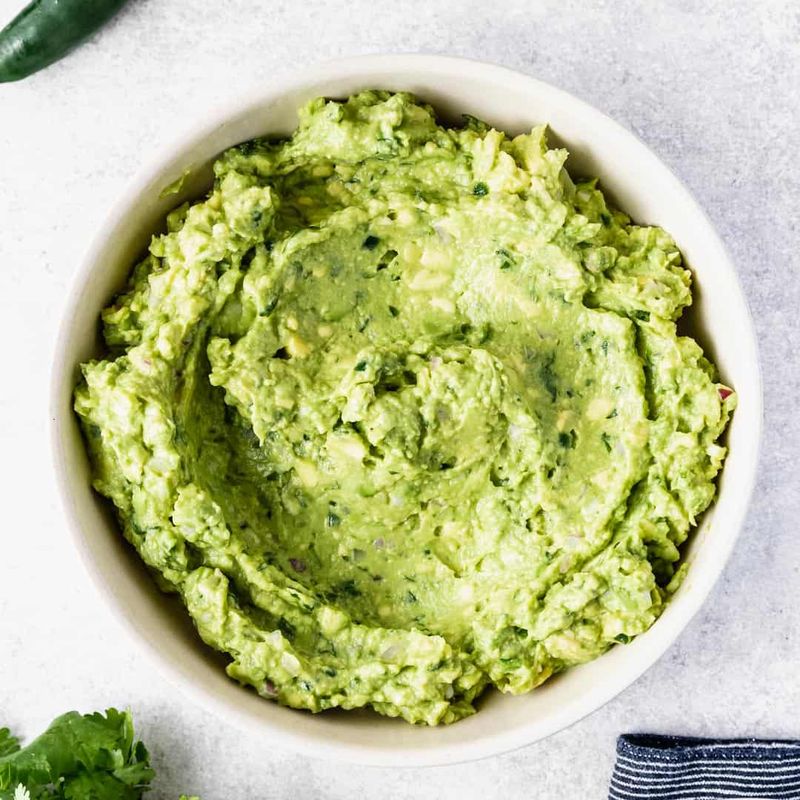
Avocado is a versatile fruit that can replace oil in many dishes. Its creamy texture is excellent for making dressings and sauces without added fats. By mashing avocado, you can make a smooth base for spreads or dips, offering a healthier alternative. It also works well in baking, providing moisture and richness. Avocado’s natural healthy fats contribute to a creamy consistency, making it an excellent choice for smoothies and desserts. Its subtle flavor allows other ingredients to shine while enhancing the overall nutritional value of your meal.
3. Chia Seeds

Chia seeds are ingredient that can replace oil in various dishes. When mixed with water, they form a gel-like texture ideal for binding ingredients in baking. This characteristic makes chia seeds an excellent substitute for oil or eggs. Besides their binding properties, chia seeds offer a rich source of omega-3 fatty acids and fiber. They can be added to smoothies, oatmeal, or yogurt for a nutritional boost. The neutral taste of chia seeds allows them to blend seamlessly into both sweet and savory recipes.
4. Greek Yogurt
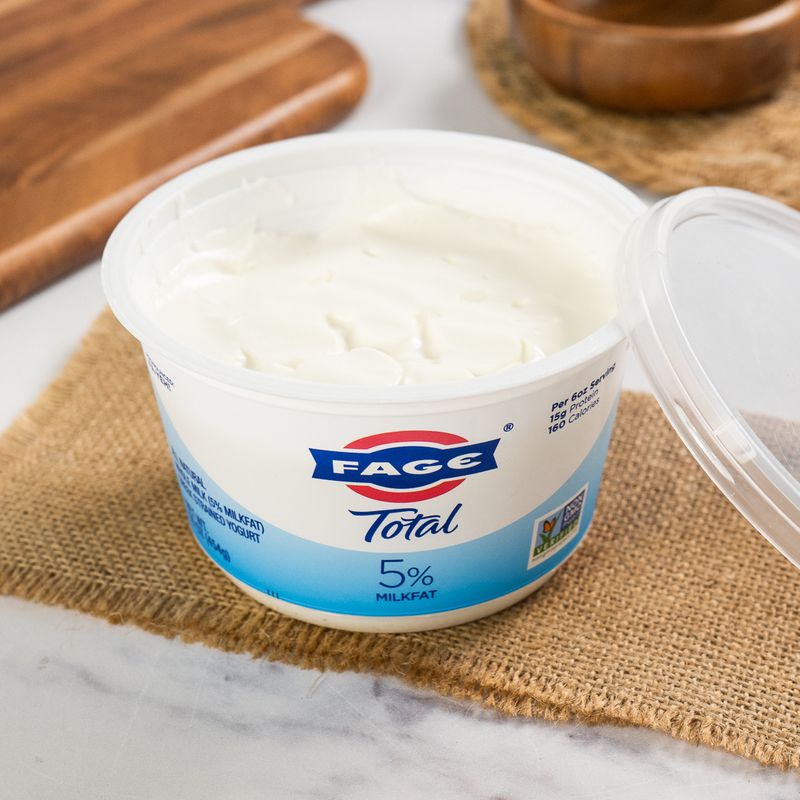
Greek yogurt is a fantastic oil substitute that offers creaminess and moisture to dishes. Its thick consistency makes it ideal for baking, especially in cakes and muffins. By replacing oil with Greek yogurt, you add protein and tanginess, enhancing the flavor profile of your recipes. It’s also great in salad dressings, sauces, and marinades, providing a rich texture without the additional fat. The versatility of Greek yogurt extends to both sweet and savory dishes, making it a kitchen staple for those looking to reduce oil consumption.
5. Coconut Milk
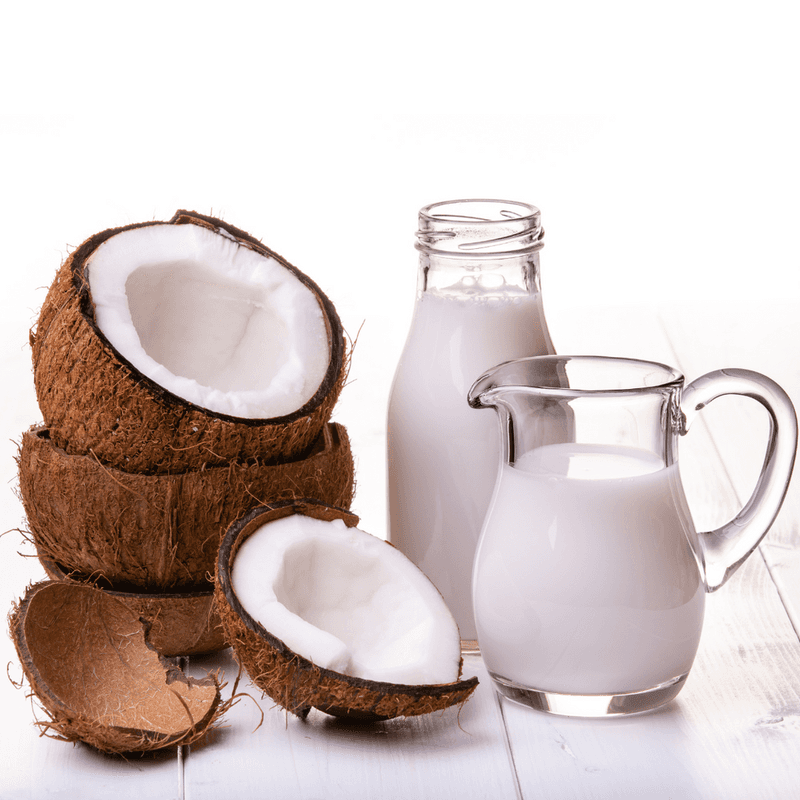
Coconut milk is a rich and creamy alternative to oil that adds a tropical flair to your cooking. It’s particularly popular in curries, soups, and smoothies, where its natural sweetness complements spices and other flavors. In baking, coconut milk can replace oil to provide moisture and a subtle coconut aroma. Its high-fat content makes it a suitable substitute that doesn’t skimp on richness. Coconut milk is also a great option for dairy-free recipes, making it versatile for various dietary preferences. Its flavor can transform ordinary dishes into exotic delights.
6. Pumpkin Puree
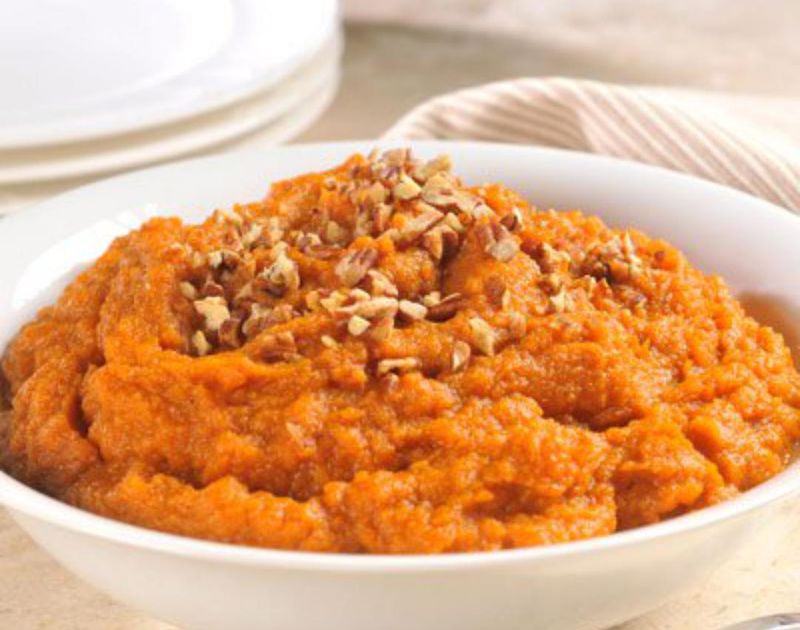
Pumpkin puree is a seasonal favorite that can replace oil in baking. Its natural moisture and sweetness add depth to muffins, breads, and cakes. When using pumpkin puree, you can substitute it for oil in a 1:1 ratio, maintaining the texture and flavor of your baked meals. Pumpkin puree is rich in vitamins and fiber, adding nutritional value to your recipes. Its earthy taste pairs well with spices like cinnamon and ginger, enhancing the overall flavor profile. Experimenting with pumpkin puree allows for different twists on traditional recipes.
7. Silken Tofu
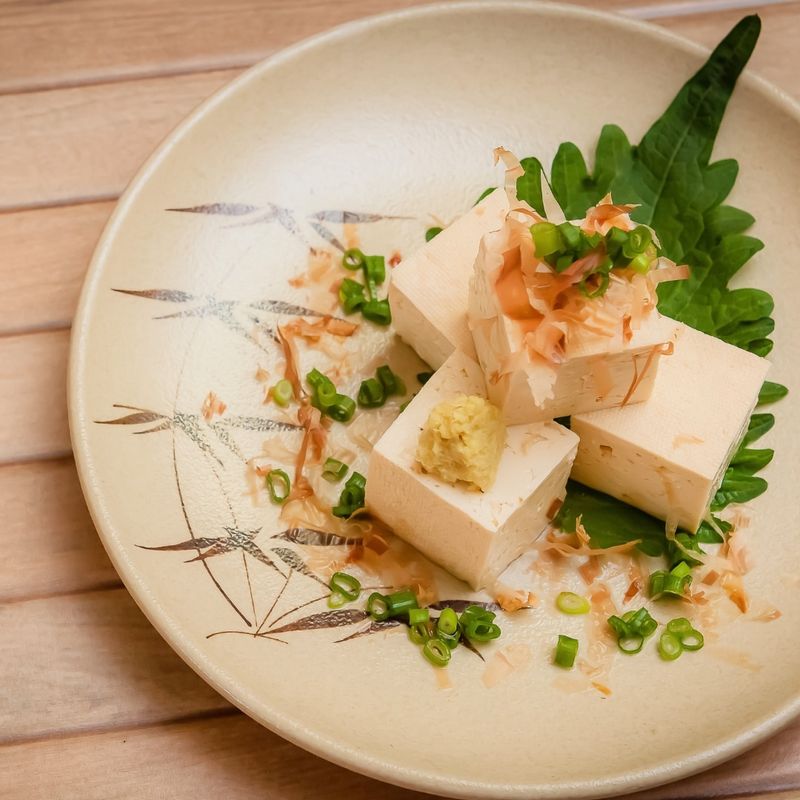
Silken tofu is a versatile ingredient that can replace oil in various recipes. Its smooth texture makes it ideal for blending into sauces, dressings, and desserts. By using silken tofu, you add protein and creaminess without the need for additional fats. It’s a popular choice in vegan and vegetarian cooking, offering a neutral flavor that adapts well to different dishes. Silken tofu is also a great substitute in baking, providing moisture and a delicate crumb structure. Its versatility makes it a valuable addition to any kitchen aiming to reduce oil consumption.
8. Mashed Bananas
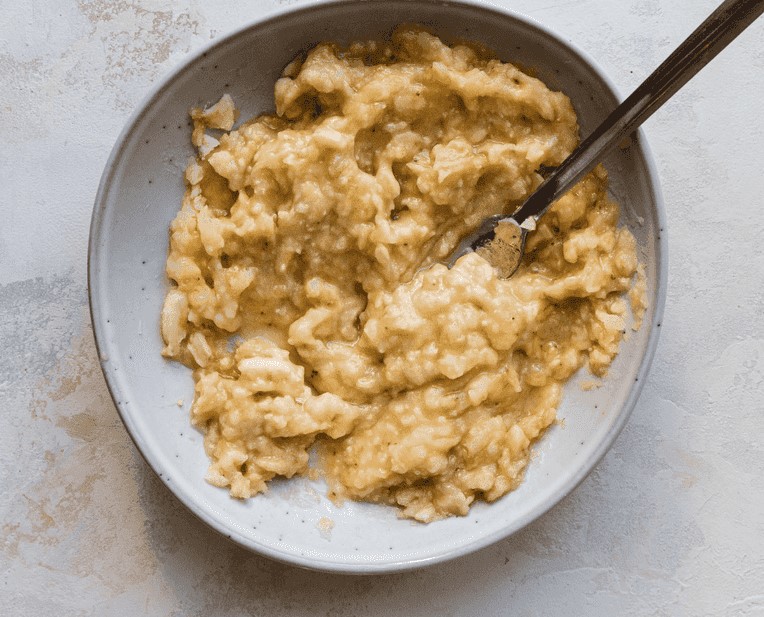
Mashed bananas are a classic oil substitute in baking, known for their natural sweetness and moisture. They work well in cakes, muffins, and pancakes, offering a healthier alternative to traditional fats. When using mashed bananas, you can replace half or all of the oil in most recipes. Their creamy texture helps maintain the desired consistency while adding a hint of banana flavor. This ingredient is not only nutritious, rich in potassium and vitamins, but also enhances the overall taste of your meals. It’s a simple way to incorporate healthier options into your baking routine.
9. Aquafaba
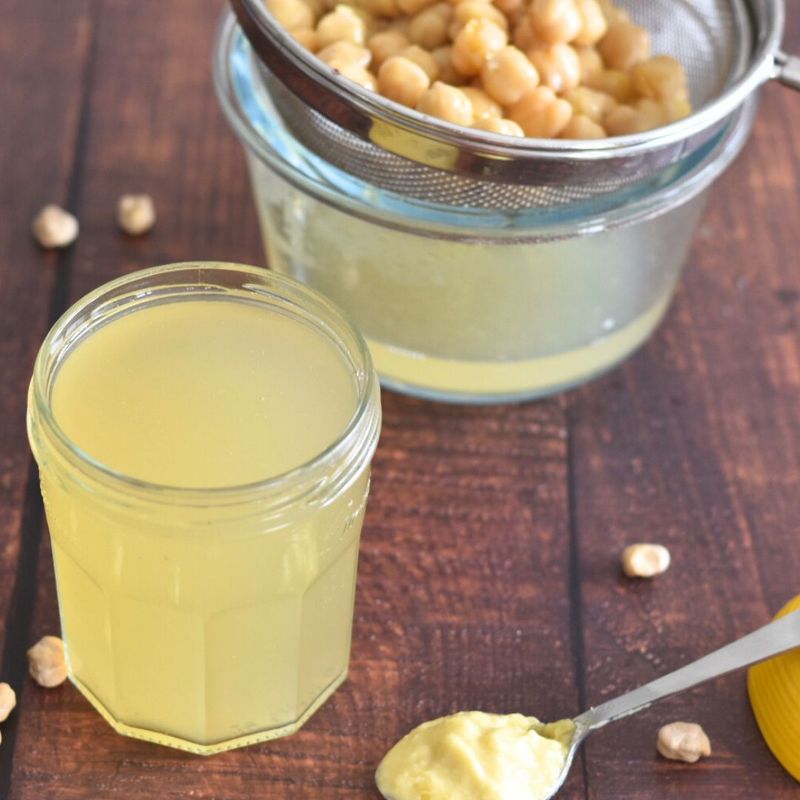
Aquafaba, the liquid from canned chickpeas, is a surprising oil substitute. It mimics the properties of eggs and oil, making it useful in baking and cooking. By whipping aquafaba, you can make airy textures in meringues, mousses, and more. Its neutral flavor allows it to blend into various recipes without altering the taste. Aquafaba is particularly popular in vegan cooking, where it replaces eggs and oil in many dishes. This innovative ingredient offers way to reduce fat content while maintaining texture and flavor in your cooking.
10. Nut Butter
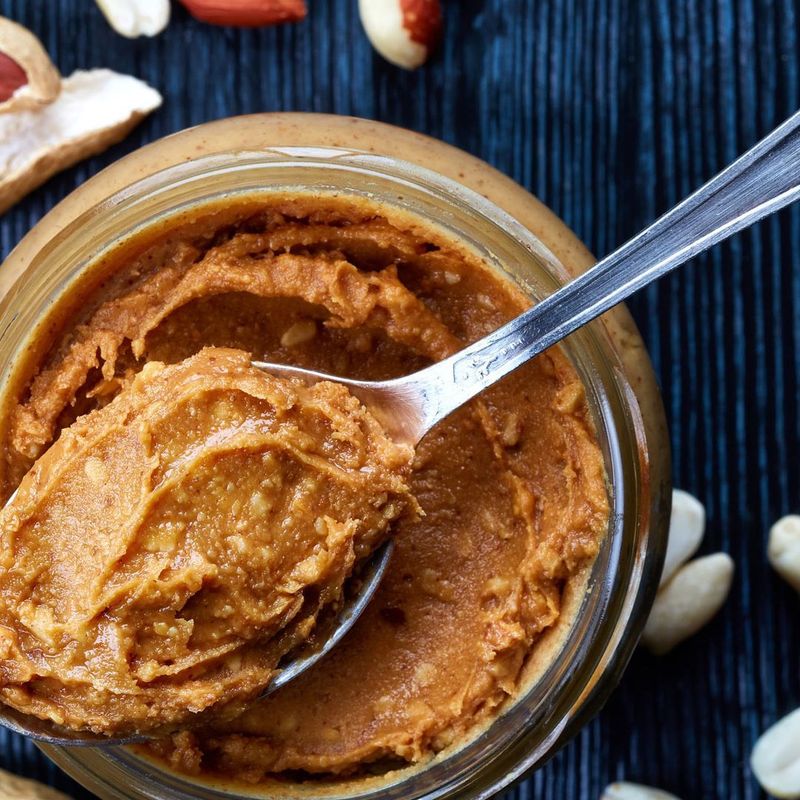
Nut butter, whether almond, peanut, or cashew, can replace oil in many recipes. Its creamy texture and rich flavor make it a delicious alternative. In baking, nut butter adds moisture and nuttiness to cookies, brownies, and more. You can substitute nut butter for oil in equal amounts to achieve similar results. Besides baking, nut butter works well in sauces and dressings, adding depth and creaminess. It’s a great source of protein and healthy fats, enhancing the nutritional profile of your dishes. Nut butter provides twist on traditional recipes, making them more flavorful and satisfying.
11. Buttermilk
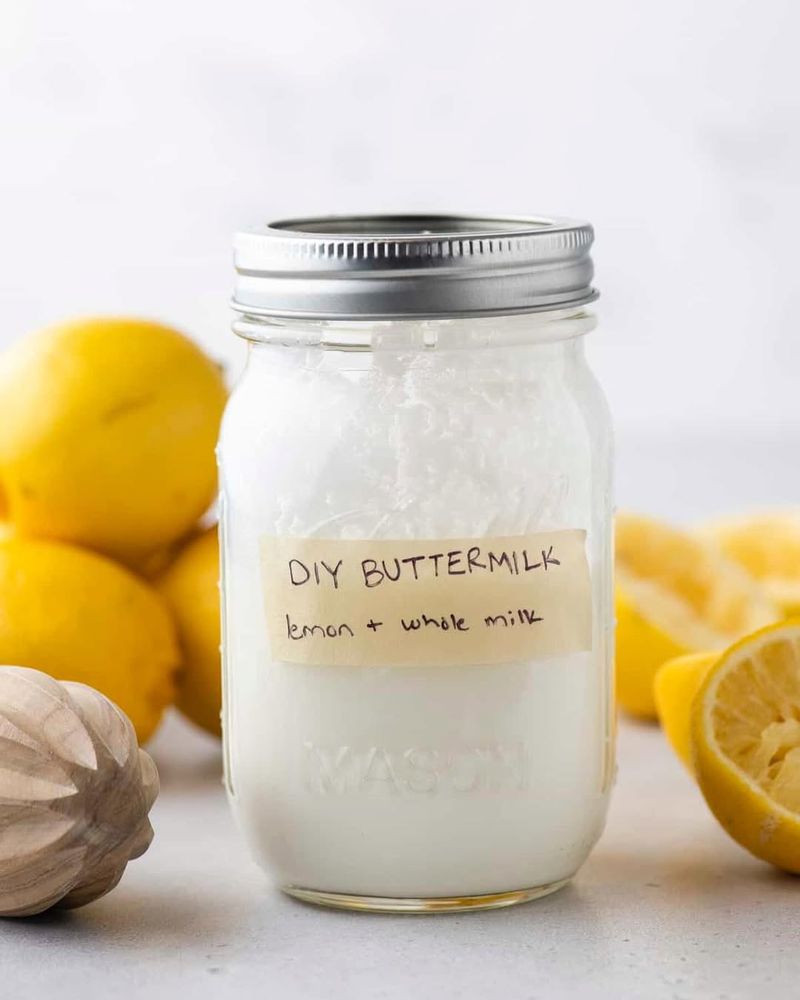
Buttermilk is a tangy and rich liquid that can replace oil in baking and cooking. Its acidity and moisture contribute to tender and fluffy baked dishes such as pancakes, scones, and biscuits. When using buttermilk, you can reduce the amount of oil or butter needed, enhancing the texture and flavor of your recipes. Buttermilk also works well in marinades and dressings, where its tanginess adds a sweet touch. This ingredient is not only versatile but also offers a way to cut down on fat while maintaining delicious results.
12. Zucchini
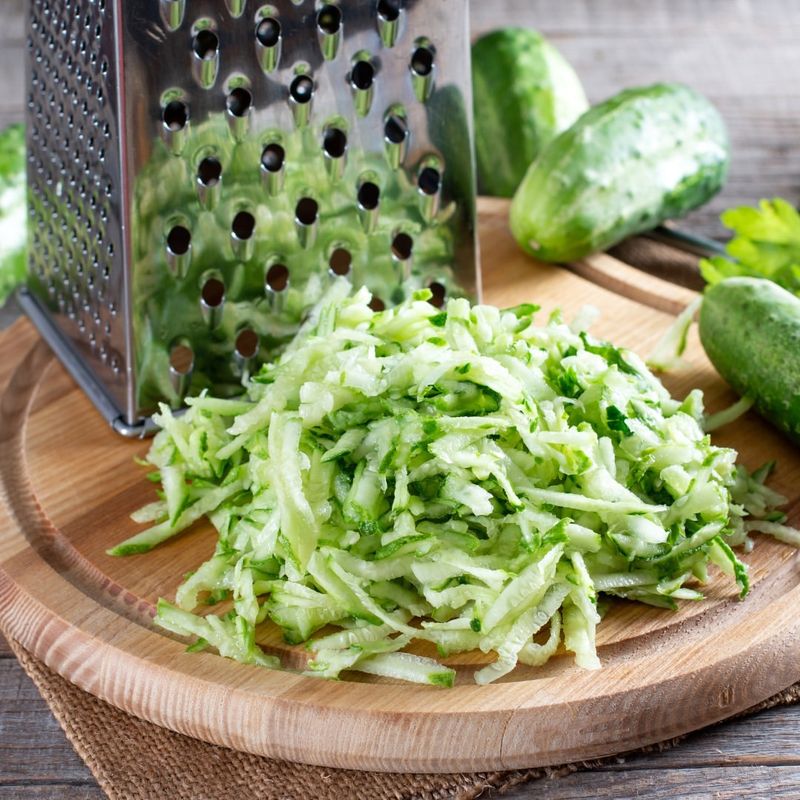
Zucchini is a versatile vegetable that can reduce the need for oil in cooking. Its high water content and mild flavor make it ideal for adding moisture. When grated, zucchini can be used in muffins, breads, and cakes, reducing the fat content without compromising texture. It’s also a great addition to salads and stir-fries, where it absorbs flavors and adds freshness. Zucchini offers a healthy alternative while enhancing the nutritional value of your dishes. Its subtle taste allows other ingredients to shine, making it a valuable ingredient in low-oil cooking.
13. Cauliflower
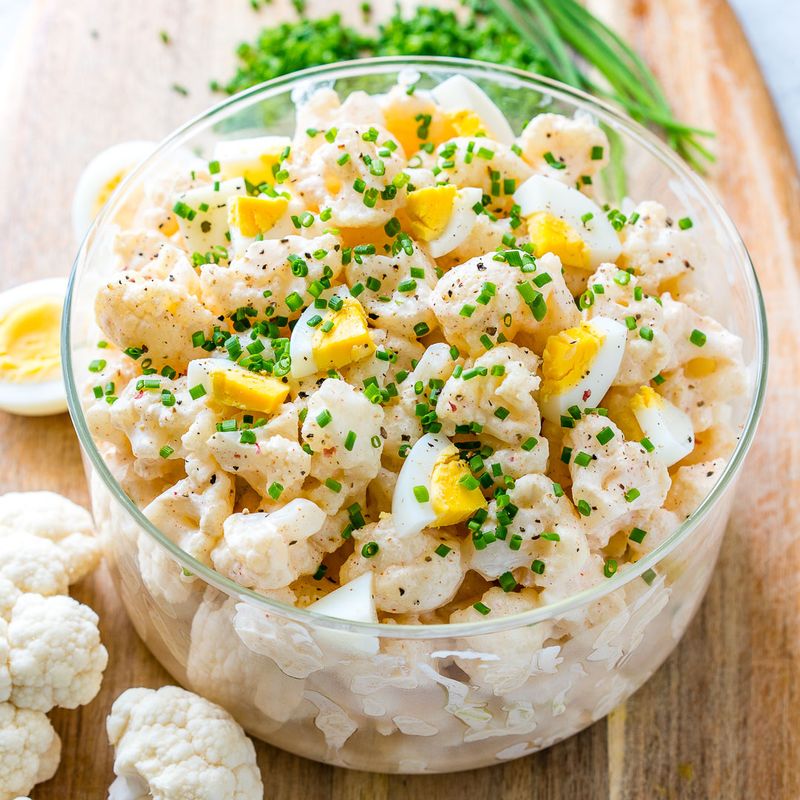
Cauliflower is a surprisingly versatile ingredient that can reduce oil usage. When steamed or roasted, it becomes tender and flavorful, offering a low-fat alternative in various dishes. Cauliflower can be mashed to make a creamy base for soups, sauces, or even as a substitute for mashed potatoes. Its neutral taste and rich texture make it a great addition to casseroles and gratins. By using cauliflower, you add fiber and nutrients to your meals while cutting down on oil. This ingredient is a clever way to enhance flavor and nutrition without relying on excess fat.
14. Dates
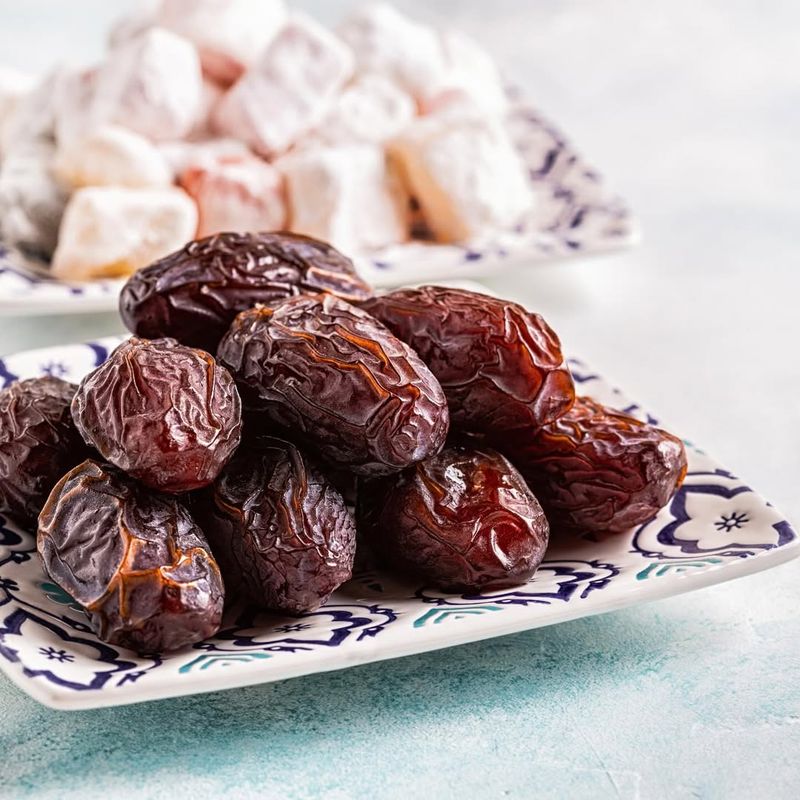
Dates are a natural sweetener and oil substitute that can enhance the flavor of your dishes. When blended, dates make a smooth paste that adds moisture and richness. This paste can replace oil in recipes like brownies, cakes, or energy bars, providing a healthier alternative. Dates are rich in fiber, vitamins, and minerals, contributing to the nutritional value of your dishes. Their natural sweetness allows you to reduce added sugars while maintaining delicious results. Using dates as an oil substitute offers twist on traditional recipes, enhancing both flavor and health benefits.
15. Lemon Juice
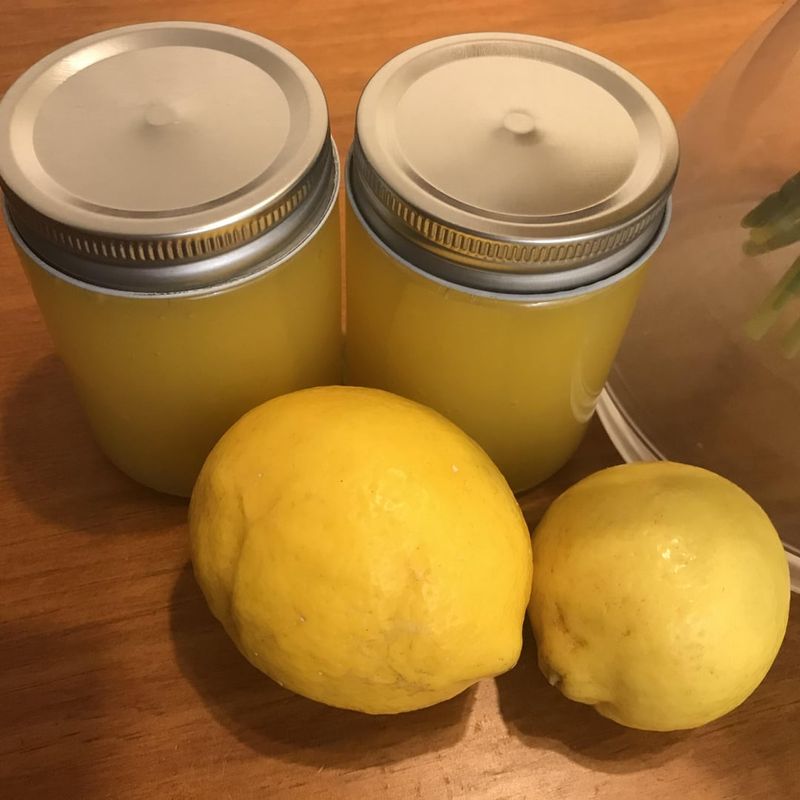
Lemon juice offers a zesty burst of flavor to your dishes, allowing you to cut back on oil without sacrificing taste. Its acidity can tenderize meats and brighten up vegetables. Plus, lemon juice is rich in vitamin C, making your meals more nutritious. Use it in dressings or marinades for a refreshing twist. Incorporating lemon juice can also help balance flavors, especially in dishes with rich ingredients, ensuring a delightful culinary experience.
16. Broth
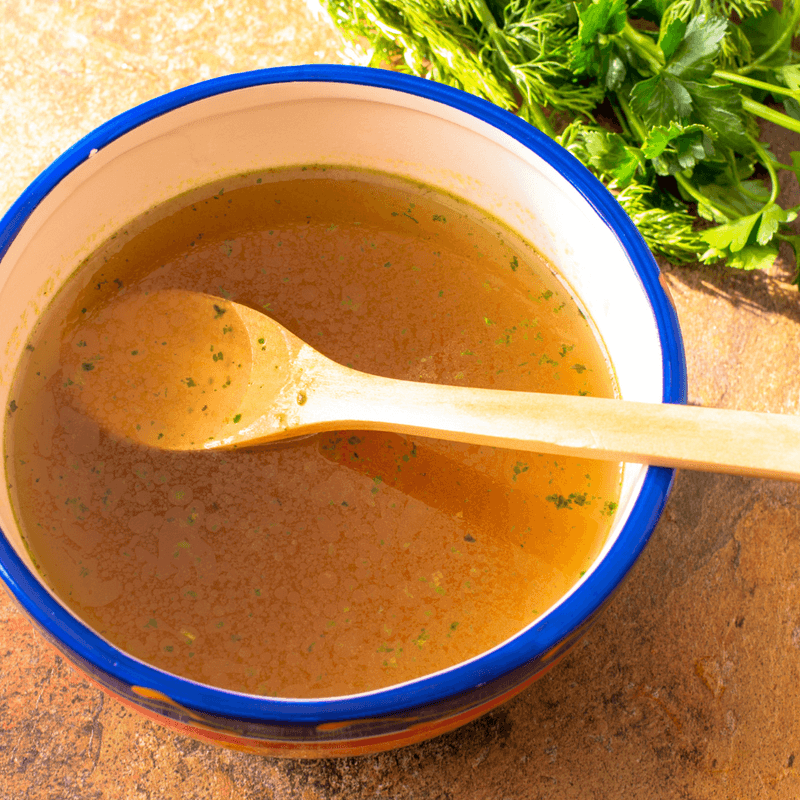
Broth is a flavorful liquid that can replace oil in various cooking methods. Its rich taste and moisture make it ideal for cooking vegetables or making soups and stews. By using broth instead of oil, you add depth to your dishes without the additional fat. It’s ideal for deglazing pans or adding flavor to grains and legumes. Broth can be homemade or store-bought, and it comes in various flavors like chicken, beef, or vegetable. This ingredient is a great way to enhance the taste and nutrition of your meals while reducing oil consumption.
17. Miso
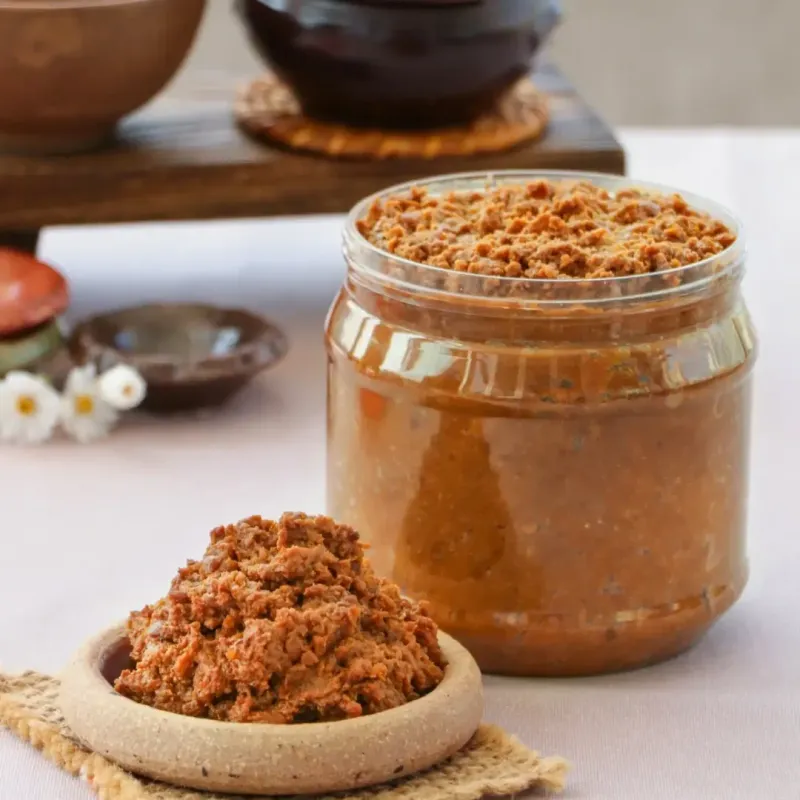
Miso is a fermented soybean paste that can replace oil in sauces and dressings. Its umami-rich flavor adds depth and complexity to dishes without the need for additional fats. Miso works well in marinades, glazes, and even soups, where its savory taste enhances the overall experience. By using miso, you introduce probiotics and nutrients to your meals, contributing to a healthy diet. Its versatility allows for versatile uses in both traditional and modern recipes. Incorporating miso into your cooking offers way to cut down on oil while boosting flavor.
18. Tahini
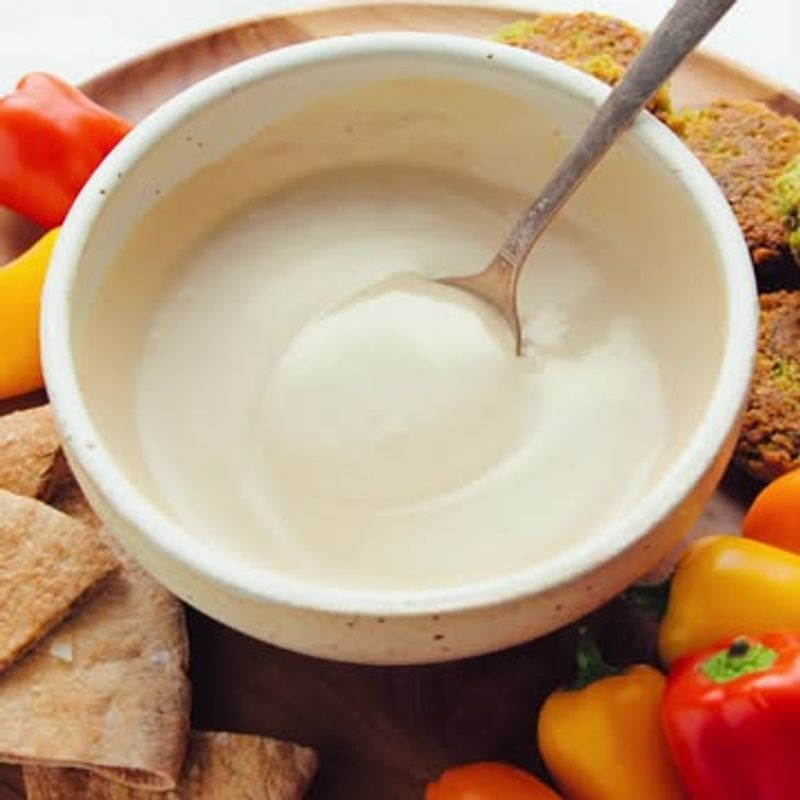
Tahini, a paste made from sesame seeds, can replace oil in various dishes. Its rich and nutty flavor makes it ideal for dressings, dips, and sauces. In baking, tahini adds moisture taste to cookies and cakes. You can substitute tahini for oil in equal amounts, achieving similar results. Besides its culinary uses, tahini is rich in healthy fats and nutrients, enhancing the nutritional value of your dishes. Its versatility and distinctive flavor make tahini a valuable ingredient in low-oil cooking, offering both taste and health benefits.
19. Molasses
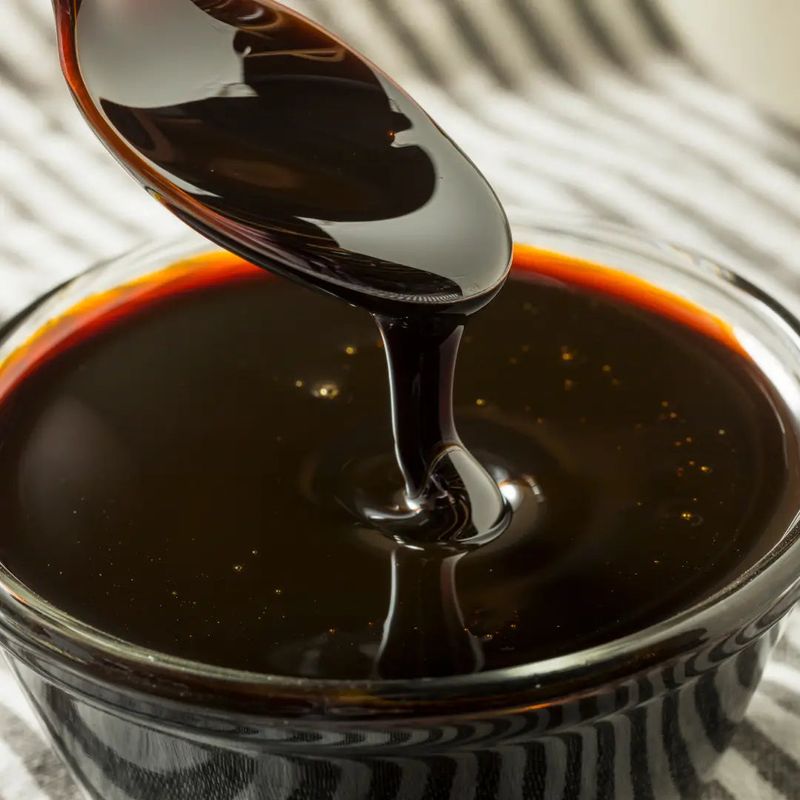
Molasses is a thick and rich syrup that can replace oil in baking and cooking. Its deep flavor adds complexity to recipes like cookies, cakes, and marinades. When using molasses, you can replace some or all of the oil, adding moisture and sweetness to your dishes. Molasses is rich in vitamins and minerals, contributing to the nutritional profile of your meals. Its robust taste pairs well with spices like ginger and cinnamon, enhancing the overall flavor. Using molasses as an oil substitute offers twist on traditional recipes, making them more flavorful and nutritious.
20. Ghee
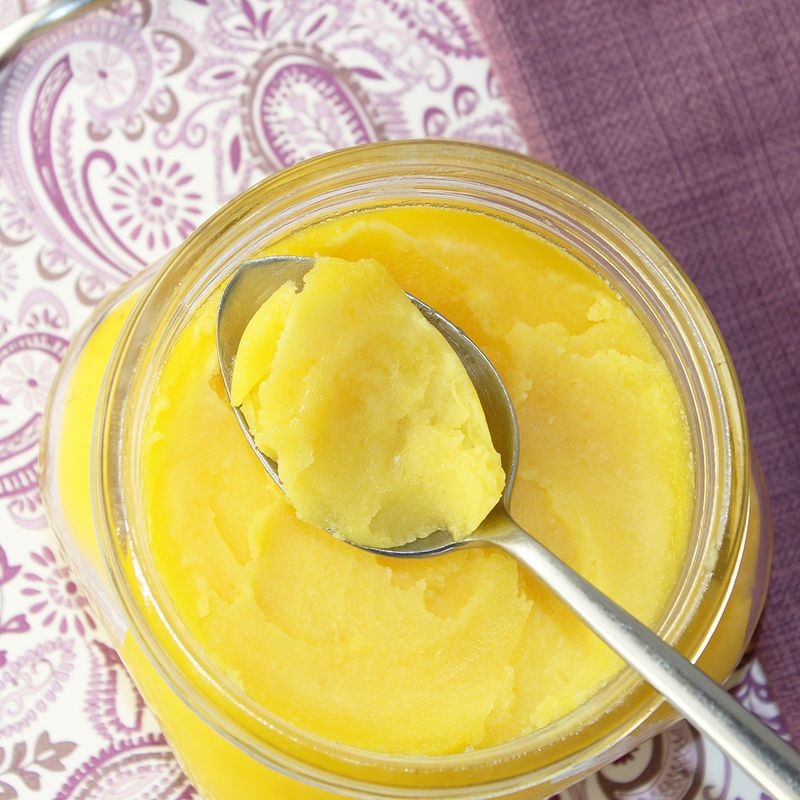
Ghee, a type of clarified butter, offers a rich alternative to oil in cooking. Its nutty flavor and high smoke point make it ideal for cooking, frying, and baking. Ghee adds depth and richness to dishes, enhancing flavors without the need for excessive oil. It’s particularly popular in Indian cuisine, where it’s used to add richness to curries and breads. Ghee is also lactose-free, making it suitable for those with dairy sensitivities. By using ghee, you can achieve flavorful and satisfying results while reducing oil consumption in your cooking.
